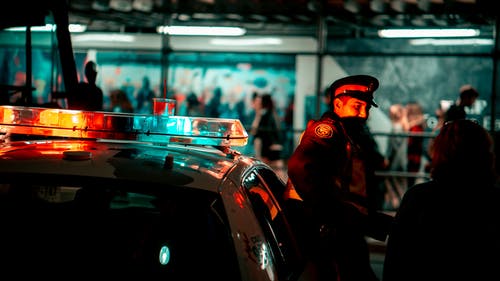Understanding the legal options available is a crucial step toward securing fair compensation.
Parking lots can be hotspots for accidents, ranging from minor fender benders to serious slip-and-fall incidents. Due to the high volume of vehicles and pedestrians sharing the same space, the likelihood of accidents increases. These accidents may also result in injuries, property damage, and complex liability questions. Hence, for victims, knowing their legal rights and options is crucial to ensure they receive the compensation they deserve.
Read on to learn the legal options for victims of parking lot accidents.
Seeking Assistance From Legal Experts
Victims of parking lot accidents typically face challenges when determining who is liable for their injuries. In cases involving hazardous conditions such as uneven pavement or poor lighting, consulting a slip and fall lawyer is essential. These legal professionals specialize in premises liability cases and can help victims understand their rights, collect evidence, and pursue compensation for medical expenses, lost wages, and pain and suffering.
For vehicular collisions in parking lots, liability may also involve one or more parties. Consulting a car accident attorney can help victims navigate the complexities of insurance claims and legal disputes. These attorneys can also address issues such as uninsured motorists or disputed fault.
Types of Parking Lot Accidents
Parking lot accidents aren’t limited to vehicular collisions. Below are the common types and their potential legal implications:
Vehicle-to-Vehicle Collisions
Collisions between two vehicles in a parking lot occur due to factors like distracted driving, failure to yield, or excessive speed. Determining fault can be challenging, as many parking lots lack clear traffic controls. In such cases, legal assistance ensures that victims can effectively claim compensation.
Pedestrian Accidents
Pedestrians are at a higher risk of being struck by vehicles in parking lots due to limited visibility, driver negligence, or poorly marked walkways. If inadequate safety measures contributed to the incident, victims may pursue claims against drivers or, in some cases, the parking lot owner.
Slip and Fall Incidents
Uneven surfaces, spilled liquids, or inadequate lighting in parking lots can lead to slip-and-fall accidents. These cases typically involve premises liability claims, where the property owner or manager may be held responsible for failing to maintain safe conditions.
Hit-and-Run Accidents
Victims of hit-and-run incidents in parking lots face additional challenges in identifying the responsible party. In these cases, uninsured motorist coverage or legal action against the property owner for inadequate surveillance may be options to explore.
Establishing Liability in Parking Lot Accidents
Determining liability in parking lot accidents depends on the incident’s specific circumstances. Below are some key considerations:
Property Owners’ Responsibility
Property owners have a legal obligation to maintain safe conditions within their premises. This duty includes:

-
- Ensuring proper lighting and signage;
- Addressing hazards like potholes, debris, or ice promptly;
- Installing adequate surveillance and security measures.
Failure to uphold these responsibilities can make the property owner liable for injuries sustained by visitors.
Drivers’ Responsibility
Drivers are expected to operate their vehicles safely, even in low-speed environments like parking lots. Negligent behaviors such as speeding, failing to yield, or driving distracted can result in liability for any resulting accidents.
Third-Party Contractors
In some cases, liability may extend to third-party contractors responsible for parking lot maintenance, such as snow removal services or repair contractors. If negligence by these parties contributes to an accident, they may share liability.
Steps Victims Should Take After a Parking Lot Accident
Taking the right steps immediately after a parking lot accident can strengthen a victim’s case. Victims should consider the following actions:
- Document the Scene: Capture photographs or videos of the accident scene, including hazards, vehicle positions, or injuries.
- Gather Witness Information: Collect contact information from witnesses who can provide statements to support the claim.
- Report the Incident: Notify the property owner, manager, or security personnel about the accident and request an incident report.
- Seek Medical Attention: A healthcare professional should evaluate Even minor injuries to establish medical documentation.
- Consult Legal Experts: Contacting a specialized attorney can help victims understand their legal options and guide them through the claim process.
With these steps in mind, victims can navigate their legal options more effectively.
Compensation Options for Victims
Victims of parking lot accidents may be entitled to compensation for various damages. These include:
- Medical Expenses: These involve coverage for hospital bills, therapy, and long-term care.
- Lost Wages: These include reimbursement for income lost due to injury.
- Pain and Suffering: This involves compensation for physical and emotional distress.
- Property Damage: This includes repair or replacement costs for damaged vehicles or personal belongings.
In cases involving gross negligence, victims may also pursue punitive damages to hold the responsible party accountable.
Navigating Insurance Claims
Insurance claims for parking lot accidents can be complicated, especially when multiple parties are involved. Victims must do the following:
- Review their insurance policies to understand coverage;
- Provide accurate and complete information when filing claims;
- Cooperate with investigations while being cautious of statements that could harm their case.
Legal representation ensures that victims can negotiate fair settlements and avoid common pitfalls in the claims process.
Filing a Lawsuit: When and Why
While many parking lot accident cases are resolved through insurance claims, some situations require filing a lawsuit. Some reasons for pursuing legal action may include:
- Disputed Liability: When parties involved can’t agree on who is at fault;
- Insufficient Insurance Coverage: If the at-fault party’s insurance doesn’t fully cover the victim’s losses;
- Refusal to Settle: When an insurance company denies a claim or offers an unfair settlement.
An experienced attorney can help victims decide whether litigation is necessary and guide them through the process, from filing a complaint to presenting evidence in court.
Conclusion
Navigating the aftermath of a parking lot accident can be overwhelming, but understanding the legal options available is a crucial step toward securing fair compensation. From consulting specialized attorneys to documenting the incident and exploring insurance claims, victims have various avenues to pursue justice and recovery. By keeping the information mentioned above in mind, individuals can protect their rights and achieve a favorable outcome.


Join the conversation!